

"My active involvement and diverse portfolio reflect a strong dedication to sustainability and advocacy, with a focus on advancing the 2030 Agenda for Sustainable Development!"
Projects and Assignments
The Green Economy Scoping Study
Barbados
The inclusion of green policy objectives in Barbados can be traced to the National Strategic Plan (2006-2025) and the Budget Speech of 2007. The process was given further impetus in 2009 when the then Prime Minister laid down the challenge of committing Barbados to become the “most environmentally advanced green country in Latin America and the Caribbean”. It was against this backdrop that the government engaged the United Nations Environment Programme (UNEP) in the establishment of a partnership to support the country’s transformation.

The Barbados Green Economy Scoping Study
The Synthesis Report
The University of the West Indies was commissioned by the United Nations Environment Programme and the Government of Barbados to undertake a Green Economy Scoping Study for Barbados in 2011. The study was intended to support and complement national initiatives towards achieving a green economy, through macroeconomic assessments and policy analysis with a view to better understanding how government policies and public and private investment can help achieve the fundamental objectives of income growth, economic development and/or diversification, and job creation, following a path that also contributes to social equity and environmental management.
The Barbados Green Economy Scoping Study link:
https://sustainabledevelopment.un.org/index.php?page=view&type=400&nr=675&menu=35

The Barbados Green Economy Scoping Study
The Concept Paper
This concept paper sought to establish the link between sustainable development and the promotion of a green economy from a Barbadian perspective. It encompassed the following objectives:
-
Provided an understanding of what we are taking about from the Barbadian perspective;
-
Identified enabling conditions necessary for the transition to a green economy;
-
Reviewed what has been done at the National level over the past 15 years in relation to sustainable development and the promotion of a green economy;
-
Identified National Best Practices as they relate to the sectors and cross-cutting areas under study; and
-
Reviewed International Best Practices, particularly from those within the OECD grouping and Asia and the Pacific.

The Compete Caribbean OECS Project

The project was sponsored by the Caribbean Development Bank (CDB), Inter-American Development and the World Bank (WB) in collaboration with the United Kingdom Agency for International Development (UKAID) and the Canadian International Development Agency (CIDA).
The Sir Arthur Lewis institute of Social and Economic Studies (SALISES), the University of the West Indies-Cave Hill Campus, Barbados was contracted by the Caribbean Development Bank to conduct a series of private sector assessments for each country within the OECS region (This includes St. Kitts and Nevis, Antigua and barbuda, the Commonwealth of Dominica, St. Lucia, St. Vincent and the Grenadines as well as Grenada). These assessments, conducted by the Special Studies Unit of the SALISES draws on primary data analysis from interviews with key stakeholders from the domestic private and public sector as well as interviews with regional and international agencies. In addition, secondary data was utilised to describe the state of the country at both the micro and macro levels.
(Project Countries: Antigua and Barbuda, Dominica, Grenada, Saint Kitts and Nevis, Saint Lucia, Saint Vincent and the Grenadines)
The Compete Caribbean Private Sector Assessment Reports Link:
http://competecaribbean.org/featured/private-sector-assessment-reports/
The Latin American and Caribbean Initiative on Sustainable Development:
The Barbados (ILAC) Indicators Project
Sponsored by the United Nations Environment Programme, the project sought to gauge how well Barbados adheres to the Millennium Development Goals (MDGs) and provides practical meaning to the processes leading to and following the World Summit on Sustainable Development. To fulfill the objectives of the ILAC Indicators project, a series of economic, social and environmental indicators were reviewed. This involved countless collaborations with national agencies and the relevant stakeholders.
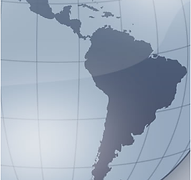
The One United Nations Climate Change Learning Partnership (UN CC:Learn)
Introductory E-Course on Climate Change
An Introductory E-Course on climate change which is administered by the ONE UN Climate Change Learning Partnership (UN CC:Learn) – a partnership of 33 multilateral organizations which supports Member States in designing and implementing results-oriented and sustainable learning to address climate change. The course provides a general understanding of climate change science and offers up-to-date information on issues that can potentially impact the extent of biological diversity, level of commerce and standard of living within the global community. It is structured around six (6) Modules: (i) Climate Change Science, (ii) International Legal and Policy Framework for Climate Change, (iii) Climate Change Adaptation, (iv) Climate Change Mitigation and Low Carbon Development, (v) Climate Change Finance, and (vi) Planning for Climate Change. The Modules have been developed and peer-reviewed through UN CC:Learn and the course has been developed with support by the Government of Switzerland. The Secretariat is provided by the United Nations Institute for Training and Research.

The ONE UN Climate Change Learning Partnership link: http://www.uncclearn.org/
This report, which was presented to the Ministry of Environment and Drainage, Government of Barbados, sought to assess the impact of a Green Economy on the sustainability of Small Island Developing States (SIDS). It focused primarily on WTO Negotiations pertaining to Environmental Goods and Services (EGS) and seeks to assess the potential impacts for Barbados. Discussions emerging from the WTO and other fora have attempted to define the scope of environmental industry by assessing the importance of EGS to the mitigation of climate change. Yet, to no avail there have still been disagreements on the suitable classification criteria for them as well as the inclusion and exclusion of products because of their proposed or limited environmental benefits. The efforts of delegates to outline their classification criteria have been met with favour, criticism and in some instances apathy.
Information Paper
WTO Negotiations on Environmental Goods and Services and the Potential Impacts for Barbados

The nature of the situation is such that the proponents of one approach are in most cases reluctant to consider other proposals. As a result, an accord with respect to the issue of climate change mitigation has yet to be reached. By reaching a consensus, one can pursue environmentally friendly practices through the promotion of a Green economy, in efforts to limit the degradation of the environs. Under this context, sustainability is encouraged through the conservation and preservation of natural resources, supported by equitable sharing across all social strata in attempts to enhance the standard of living and to alleviate poverty; and facilitated by the management of energy, waste and transportation.
Iversity
Disasters and Ecosystems: Resilience in a Changing Climate
This Massive Open Online Course (MOOC) enhances knowledge and skills for tackling complex issues such as resilience and transformation, sustainable development, ecosystem management, disaster risk reduction, climate change adaptation and how they can be operationalized. It will benefit disaster managers and practitioners, climate change adaptation professionals, development planners, project implementers and policy makers. The course will be delivered through a series of lectures and case studies, quizzes, peer-reviewed exercises, along with additional study materials provided to the students. Lectures will be available through videos as well as online documents and will be geared for students who may not have access to high speed internet so they can follow the course. Students will be provided the opportunity to enhance their critical thinking through real life and fictitious problem solving exercises. Each week will feature an international expert who will be available to respond to questions and interact with students.
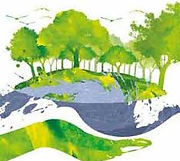
The University of the West Indies was commisioned by the Office of the Resident Representative of the United Nations Development Programme - Barbados and the OECS to develop a Discussion Paper which will provide a background and framework to guide the United Nations Developmental Assistance Framework (UNDAF) 2017-2021 consultation and strategic planning process.
The United Nations Developmental Assistance Framework
Discussion Paper on the Subregional Analysis of the Developmental Context within Barbados and the OECS

The Global Environment Facility's 7th Biennial International Waters Conference
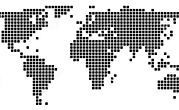
Sponsored by the Global Environment Facility (GEF), the United Nations Development Programme (UNDP) and the IWC7 Organizing Committee, the 7th Biennial International Waters Conference was convened in Barbados from October 26-31, 2013 under the auspices of the Government of Barbados.
Participation at the conference involved representation from governmental and non-governmental organizations, IWC7 project managers, transboundary management institutions, UN Agencies, academic institutions, international institutions and the private sector. As a Small Island Developing State, Barbados was selected to host IWC7 in part to highlight the threats posed to SIDS’ water security on account of rising sea levels and saline intrusion of coastal aquifers, rainfall variability and reduced catchment recharge, and increased frequency of natural disasters. Conference participants took part in one of three technical site visit tours around the island that showcased Barbados’ water management approaches to land-use planning, coastal risk reduction and groundwater protection.
The World Bank manages an Institutional Development Fund (IDF) that provides grants to strengthen the capability of client institutions to implement programs, activities and initiatives that lead to better development results. Within this context, the Bank is currently managing the IDF Grant, Strengthening Labour Market Monitoring and Performance in the Caribbean, which is currently being implemented by the University of the West Indies in Barbados. Under this IDF agreement, the University of the West Indies will be in charge of developing a Labour Market Information system for the Caribbean region through a series of activities that will improve the availability and organization of information related to labour markets in Caribbean countries, thus enabling a culture of monitoring and evaluation, and information management in the region.
(Project Countries: Antigua and Barbuda, Saint Kitts and Nevis, Saint Lucia, Saint Vincent and the Grenadines, Jamaica and Trinidad and Tobago)
The World Bank Group
Strengthening Labour Market Monitoring and Performance in the Caribbean Project

Coursera
Pathways to Climate Change Adaptation - The Case of Smaill Island Developing States
This course provides an overview of climate change adaptation for the Small Island Developing States (SIDS) with a focus on the environmental perspective. It will present the key concepts regarding the issues of adaptation to climate change and the methodological tools needed to analyse challenges faced by SIDS, in order to propose sustainable solutions. Climate change has already taken place, and it will continue to do for the foreseeable future. These changes present important challenges, but also opportunities, for humanity. The focus of this course will be on adaptation. In other words, we will look at how each country must assess their specific vulnerabilities to climate change, and the tools at their disposal for protecting the well-being, economy, and environment of its citizens.

The United Nations Habitat III Project
The Barbados National Report
The Sir Arthur Lewis Institute of Social and Economic Studies (SALISES) and the Centre for Resource Management and Environmental Studies (CERMES) of the University of the West Indies, Cave Hill Campus, have been commissioned by the Government of Barbados to undertake the National Report for the UNHABITAT III project. The report, which was presented at the 2016 UNHABITAT III Conference in Equador, will affirm Barbados' commitment to the achievement of sustainable urban development and poverty alleviation.
The Barbados HABITAT III Report Link:
http://habitat3.org/wp-content/uploads/Habitat-III-Report-Barbados-final.pdf

This specialised module introduces the theme of climate change and human health. Human health is directly affected by the weather, climate variability and climate change. The module will explain how mitigation and adaptation policies and measures in health and related sectors can benefit the human health. Moreover, the module will present tools to assess and integrate health within climate change policies and strategies and vice versa. Several examples of how countries are responding to the health challenges posed by climate change, including taking advantage of the opportunities, are presented.
UN CC:LEARN
Human Health and Climate Change

UN CC:LEARN
Climate Policy and Public Finance
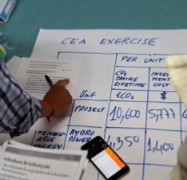
Countries in Asia and the Pacific are spending significant amounts of their national budgetary resources on climate change related matters, ranging from 2.7% in Thailand to up to 16.9% in Cambodia. That means the national budget plays a critical role in a country’s climate change response. It also means that countries can optimize their public expenditures by taking into consideration current and projected changes in the climate. This e-tutorial aims to build understanding of the links between climate policy and public finance. It has been developed by the UN Institute for Training and Research (UNITAR) as part of the regional project “Strengthening the Governance of Climate Change Finance to Benefit the Poor and Vulnerable in Asia and the Pacific” implemented by the UN Development Programme (UNDP) with financial support from the Swedish Development Cooperation (SIDA).
UN CC:LEARN
Climate Responsive Budgeting for Sectors
This e-tutorial provides an introduction to how governments can respond to the climate change challenge through better budgeting. It will introduce and explain a new approach to integrating climate change risks and opportunities into budget preparation. So called “climate-responsive budgeting” allows sectors to identify investments likely to perform best under a changing climate. At the core of this e-tutorial is a case study of an irrigation scheme in Thailand, the Plychumpol scheme, while the information is delivered based on a "hands-on" approach including interactive exercises. The e-tutorial has been designed for officials located within a sector ministry affected by climate change, particularly the agriculture sector. However other interest groups may also find the content useful. This e-tutorial has been developed under the UNDP Strengthening the Governance of Climate Change Finance to benefit the poor and vulnerable (2012-16) programme, with support from the Government of Sweden. The content is based on methodological work by Kit Nicholson.

UNITAR
Green Economy and Trade
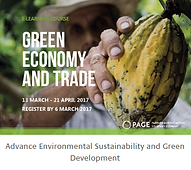
Trade in environmental goods and services (EGS) offers significant opportunities, in particular for developing countries, to drive economic development while protecting natural capital and creating better livelihoods for citizens. In order to seize these opportunities, UN-Environment and UNITAR are collaborating within the Partnership for Action on Green Economy (PAGE), to deliver this interactive e-learning course at the nexus of trade and the green economy. The e-course introduces various concepts, policy instruments and enabling conditions to identify, assess and harness benefits of sustainable trade in the context of the 2030 Development Agenda. Moreover, participants will acquire basic skills for translating sustainable trade principles into a real-world economic, policy and professional context.
edX
IDBx: IDB6.1x Project Management Techniques for Development Professionals

Public institutions, non-governmental organizations, development agencies, and others who promote economic and social development in Latin America and the Caribbean often struggle to turn proposals into concrete realities that increase social well-being and achieve results within the available time with scarce resources. This course, offered by the Inter-American Development Bank (IDB) through the edX platform, provides concepts and tools to apply in project management that can generate a substantial change in the way objectives are being met. This MOOC seeks to strengthen participants' capacities in project management for development so that projects can be effectively and efficiently executed. This project management MOOC includes case studies that will help you better understand key project management concepts and tools; presentations from Project Management Professional (PMP)® certified with ample experience in the topic; discussion forums; and selected readings.
edX
IDBx: IDB20.1x Rise up: Climate Change Education
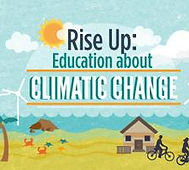
Our climate is changing rapidly, and now more than ever we need to be ready to act and prepare the next generation to do the same. This course explores the basic science behind climate change and presents the tools to teach it in a positive, engaging and participatory way. The course also introduces some of the ethical and social issues around climate change. This is a hands-on course that makes use of videos, lesson plans and online games developed by the IDB's "Rise-Up: Education Against Climate Change" initiative with examples coming directly from Latin America and the Caribbean. It is intended to assist elementary and high-school teachers or teachers-in-training in the launch of climate change education and actions to mitigate and adapt to climate change in their school community.
UN CC:LEARN
Cities and Climate Change
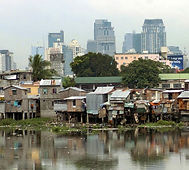
The world is becoming more and more urban, and therefore cities are important actors in addressing climate change. The module will cover both how cities are affected by climate change and how cities are contributing to climate change. In addition, the module will look at how climate change adaptation and mitigation can be considered in urban planning and identify concrete measures. Several examples of how cities can play a transformational role in addressing climate change are presented.
This specialized module introduces the theme of climate change and children, with the aim to provide a children’s perspective to the discussions on how to deal with this global crisis. The module will present how children are and can be impacted by climate change. It will then look at how children’s resilience to climate change could be strengthened and at the benefits that can be provided by mitigation measures. It will also discuss solutions, focusing on the empowerment of children as actors of change and on the key role of Governments in children’s protection. Several examples are provided to illustrate the concepts presented. The module has been developed and peer-reviewed through UN CC:Learn, in close collaboration with the United Nations Children's Fund (UNICEF).
UN CC:LEARN
Children and Climate Change

UN CC:LEARN
REDD+ Academy E-Course
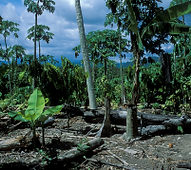
The REDD+ e-Academy is an e-learning course which aims to ensure the material developed for the REDD+ Academy is accessible to all. It provides an overview of key REDD+ issues with the aim to empower participants to contribute to a well-informed national REDD+ process. This course offers you knowledge needed to better understand the various components of REDD+, from the basics to the points of setting reference levels, monitoring, allocation of incentives and stakeholder engagement.
The Project Management Institute
Project Management Professional (PMP)® certification

The Project Management Institute (PMI) offers a professional credential for project managers, known as the Project Management Professional (PMP)®. PMI's professional credentialing examination development processes stand apart from other project management certification examination development practices. PMI aligns its process with certification industry best practices, such as those found in the Standards for Educational and Psychological Testing. The (PMP)® credential is also accredited against the internationally recognized ISO 17024 standard.
The Government of Barbados
National Ozone Depleting Substances Policy Paper
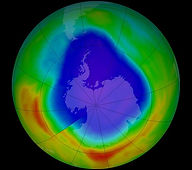
This study seeks to strengthen the legislative policy framework governing Ozone Depleting Substances in the island. It will result in the preparation of a national policy that will be used for the preparation new legislation that will specifically regulate the local RAC sector. This study does not involve legislative drafting but relates to the development of drafting policy and instructions. The final output will be a report document which includes the RAC policy that captures the main findings of each sub-component together with drafting instructions for the preparation of new legislation.
The World Bank Group
From Climate Science to Action

This new course presents the most recent scientific evidence on climate change. It explores different strategies for low emission and climate resilient development, and provides an overview to the Paris Agreement ratification with some reflections on COP22 outcomes. Through interactive video talks, complimented with curated readings, resources and quizzes, renowned scientists and policy makers from the field will lead you through the course. An active discussion forum on the course would further enhance learning where participants get to exchange knowledge with peers from across the globe. As the course concludes, you will be invited to reflect on what you can do at the national, local, community, and individual level to limit global warming below 2°C and adapt the impacts already occurring.
UN CC:LEARN
Climate Information Services
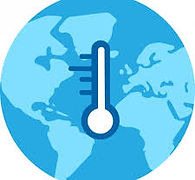
This tutorial introduces climate information and services and their application in decision-making. It has been developed by UNITAR in collaboration with UNECA’s African Climate Policy Center (ACPC) and the Pan-Africa component of the Weather Information Services for Africa (WISER) program, kindly supported by UK’s Department for International Development. It is based on the WISER toolkit “Mainstreaming/Integrating Climate Information and Services into Legislation, Development Policies, Plans and Practices”, and has been tailored to the needs of busy professionals in national, regional, and local governments and other relevant stakeholders.
COURSERA
Work Smarter, Not Harder: Time Management for Personal & Professional Productivity

Through this course, you will be able to gain and apply your knowledge and understanding of personal and professional awareness, organization and commitment, and use the tools, methods and techniques that you have learned in goal setting, prioritization, scheduling, and delegation to overcome time management challenges and enhance productivity.
Upon completing this course, you will be able to:
1. Learn to plan effectively to achieve your personal and professional goals
2. Learn to recognize and overcome barriers to successful time management
3. Identify specific time management tools and use them effectively
4. Manage resources both effectively and efficiently
5. Keep your sense of perspective to prevent and manage crises
6. Learn to delegate effectively
7. Learn to manage expectations and say “No” when appropriate.
COURSERA
Successful Negotiation: Essential Strategies and Skills

By the time you complete this course, you should be able to confidently take the four steps that lead to negotiation success:
-
Plan your negotiation strategy,
-
Use key tactics during your negotiations,
-
Close your negotiations with contracts that focus on creating value, and
-
Complete the process by successfully performing the contract and evaluating the results.
UNITAR
Green Fiscal Reform
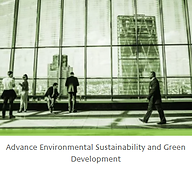
Many governments face the triple challenge of reducing environmental risks, while fostering economic growth and reducing poverty. Green fiscal reform (GFR) as a policy approach can improve fiscal consolidation, spur innovation, and help identify smarter ways for government taxation and spending. By setting appropriate economic incentives and price signals green fiscal policies can help shift consumption patterns and drive private investments in human, natural, social and clean-produced capital.
To meet the learning needs and build capacities of national stakeholders, the Partnership for Action on Green Economy (PAGE) developed this e-learning course. The interactive and practice-oriented course seeks to provide interested participants from government, business, civil society and academia with an introduction to various approaches and policy instruments for reforming government spending and revenue generation with the goal of supporting the transition to a green economy.
UNITAR
Sustainable Consumption & Production in Latin America & The Caribbean Region: Approaches & Practical Tools
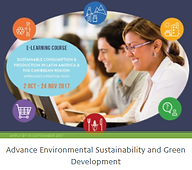
National governments play a fundamental role in the process of incorporating sustainable consumption and production (SCP) into national policies, which is key for achieving sustainable development. With the goal of scaling up learning on the various approaches and tools for SCP in the region, UN Environment and UNITAR are partnering to deliver for the first time this interactive e-learning course especially tailored to the context of Latin America and the Caribbean region.
Climate change poses an existential threat to Small Island Developing States. This output document contributed to the development of the rationale, description and objectives for various climate change courses; developed course content in modular formats; and assisted in the compilation of multimedia resources for the course: (i) prescribed texts, (ii) assigned readings, and (iii) internet resources.
The University of the West Indies
Climate Change Course Development

UNITAR
Introduction to the 2030 Agenda: A New Agenda for a Sustainable World
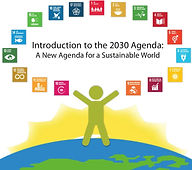
2015 was marked by the adoption of four landmark UN agreements: Sendai Framework for Disaster Risk Reduction, Addis Ababa Action Agenda, 2030 Agenda for Sustainable Development and the Paris Agreement. This online course has been designed to provide an in depth analysis of the 2030 Agenda, drawing on the synthesis from the Secretary-General, the inputs received from stakeholders, the wealth of knowledge produced by the Technical Support Team, and contributions made by 22 United Nations entities to a series of delegates’ briefings organized by UNITAR during the negotiations within the Open Working Group on Sustainable Development Goals. This course has been designed, specifically, with a view to addressing the knowledge needs of the public and raise awareness regarding the 2030 Agenda for Sustainable Development.
The University of the West Indies
Graduate Programme Course Development

The discipline of economics has expanded in scope in recent times. This is aptly noted in the many contributions by economists to areas such as climate change policy, poverty reduction, private sector development, social protection, citizen security and labour markets, psychology and other development studies. Designed with these challenges in mind, pursuing postgraduate programmes within the Department of Economics will equip candidates with requisite skills to provide policy advice within the public and private sectors at the national, regional and international levels. Catering to students with or without a strong background in economics, the programme provides graduate level training in the core components of modern economic analysis and appropriate quantitative methods. Students will acquire ability to analyse economic problems, both empirically and theoretically, and develop a deeper knowledge of economic trends, institutions and policies. This output document contributed to the development of the rationale, description and objectives for various postgraduate courses; developed course content in modular formats; and assisted in the compilation of multimedia resources for the course: (i) prescribed texts, (ii) assigned readings, and (iii) internet resources.
UNITAR
Integrated Planning for Climate Change and Biodiversity

Land-use planning frameworks have traditionally focused on developing settlements and related infrastructures with limited consideration of biodiversity conservation and climate adaptation and mitigation requirements. It is underused in maximizing win-win solutions for human well-being and sustainability under the threat of global climate change. Awareness and knowledge of land-use planning as a tool for biodiversity and climate resilience are to be raised and strengthened among relevant actors at various levels.
The overall goal of this course is to increase the capacity of key stakeholders to optimize planning to support biodiversity and climate change adaptation objectives, including through the effective engagement of protected area systems.
edX
IDB: IDB10-1x Data for Effective Policy Making
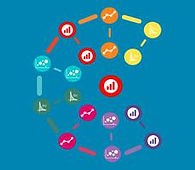
One of the challenges faced daily by public institutions, non-governmental organizations, development agencies, and other stakeholders that promote economic and social development in the Caribbean, is being able to understand the data and charts found in reports and studies to make evidence-based decisions in order to improve public policies.
This course, offered by the Inter-American Development Bank (IDB) through the edX platform, provides concepts and tools that can be applied to strengthen your ability to use, understand and interpret data, using the platforms "Numbers for Development" and its data sub-set "Caribbean Data Portal" developed by the Inter-American Development Bank (IDB), which presents socio-economic data and indicators of Latin America and the Caribbean. Through these tools, course participants will be able to understand how to improve the decision-making process in public management. Also, another goal of this course is to promote understanding of basic concepts of data analysis that will allow course participants to maintain efficient communication with data specialists. Essentially, this course will help you take control over data, make sense of it and use it to improve your decisions.
The overall goal of the course is to explore the world of data in a smooth and engaging way and to incorporate data analysis in decision-making processes, thus making even smarter decisions.
UNITAR
Gender Matters

This course, offered by the United Nations Institute for Training and Research, explores the term gender which has become a central focus in contemporary literature about development, security and conflict. Gender is often invoked in post-war contexts in relation to the disproportionate and unequal effects of war on men and women. In an effort to define and understand gender, especially when we are referring to individuals and relations at local and global levels, three main approaches must be explored:
-
Gender relations: the social relations between men and women, as well as those between women, and those between men. Gender relations include the distribution of power and access to, as well as control over, resources between the sexes. Generally, gender relations are unequal and favour men over women.
-
Gender norms: the standards created by society that shape and define which characteristics are expected, allowed and valued in a man or a woman in a given context. They define how men and women should look, be, and act. Gender norms correspond to social expectations, early internalized by individuals. Gender identity is generally expected to – and often does – conform to gender norms.
-
Gender roles: the social, economic and political responsibilities assigned to boys, girls, men and women. They correspond to the realization of gender norms: gender roles and gender norms are defined in relation to one another.
UNITAR
Confronting Trauma
Trauma is a global burden, adversely affecting human development, world development, and even world peace. Trauma has not received the attention it deserves, or treatment the support it needs. The contribution large-scale trauma healing could make to enhance social, economic and cultural productivity, as well as individual educability, creativity and well-being, could well be historic. Recent developments have the potential to bring on this large scale healing, for humanitarian and peace operation staff, and for the global population. This open, self-paced advocacy presentation aims to raise awareness and influence policy decisions to support and implement these new developments, and help bring an end to the insidious and unnecessary suffering that trauma wreaks worldwide.
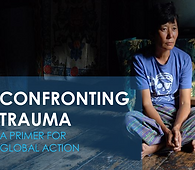
UNITAR
Business and the 2030 Agenda: Working Together Towards a Sustainable Future
This course will provide you with an understanding of why the United Nations and the business community are vital to each other to obtain the Sustainable Development Goals (SDGs). In this course, we will learn about the 17 SDGs, why they matter for business, and why the UN and governments need businesses to successfully implement them. Developed by the United Nations Institute for Training and Research (UNITAR) and the Sustainable Development Goals Fund (SDG Fund), this course will guide us through an introductory framework on how to engage and set up partnerships. Interviews with and presentations by UN delegates, business representatives and academics will introduce us to case studies and concrete examples to target specific goals, including: inclusive economic growth for poverty eradication; water and sanitation; food security and nutrition; gender considerations; and the protection of refugees and vulnerable migrants.
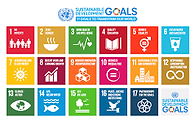
UNITAR
Gender and the Environment

This course will provide you with an understanding of gender and the environment. It explores the many dimensions of gender and its relation to biodiversity, climate change, land degradation, international waters and chemical waste. It provides you with the knowledge and tools to mainstream gender and to be an effective change-maker for sustainable development. It also provides you with the facts and figures, and a better understanding of the global international frameworks related to gender and the environment. The course is divided into six modules covering the following areas: 1) Introduction, 2) Climate Change, 3) International Waters, 4) Biodiversity, 5) Land Degradation, 6) Chemicals and Waste.
This self-paced free course has been developed by the Global Environment Facility (GEF), the United Nations Development Programme (UNDP), the GEF Small Grants Programme (SGP), UNITAR/UN CC:Learn, with valuable contributions from the International Union for Conservation of Nature (IUCN), UN Women, UNDP, UN Environment and the Secretariats of the Multilateral Environmental Agreements that the GEF serves, including the Convention on Biological Diversity, the United Nations Framework Convention on Climate Change, the United Nations Convention to Combat Desertification and the Basel, Rotterdam and Stockholm Conventions, among others.
Inter-American Development Bank
Climate Change and Disaster Risk Reduction Module for the Public Expenditure Review in Barbados

This project seeks to provide a concise understanding of the legal framework and historical spending in response to Climate Change in both adaptation and mitigation, and disaster risk management (risk assessment, risk mitigation and prevention, preparedness, financial protection, resilient recovery, risk transfer and reconstruction); as well as the composition and possible efficiency measures for key categories of spending and sectors in Barbados, as described in its National Determined Contributions under Paris Agreement. This study also includes an assessment of other national key areas such as Coastal Zone Management and Sustainable Energy.
UNITAR
Resilience Action Planning - Implementing the Sendai Framework at the Local Level
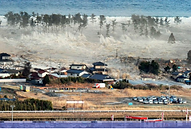
Over the past 20 years disasters have affected 4.4 billion people, caused USD 2 trillion of damage and killed 1.3 million people. Disasters have affected people living in developing countries and, in particular, the most vulnerable communities within these countries. Particularly in the context of increased urbanization, urban risk continues to rise. The vulnerability of cities to disasters is growing especially as poor people settle in high-risk urban areas. Unfortunately, the planning and development of cities has given little consideration to the consequences of hazards such as earthquakes, hydro-meteorological risks and others. The implication of this reality is the need for countries to focus on creating a safer world for urban dwellers and developing a series of innovative approaches to build resilience. On the basis of these needs, UNITAR has developed the e-learning course Resilience Action Planning - Implementing the Sendai Framework at the local level.
Tableau
Data Analytics Software
From connection through collaboration, Tableau is the most powerful, secure, and flexible end-to-end analytics platform for your data. Elevate people with the power of data. Designed for the individual, but scaled for the enterprise, Tableau is the only business intelligence platform that turns your data into insights that drive action.

UNITAR
Leadership in the Public Sector

The overall aim of the course is to strengthen the competences required by public sector leaders and public servants for the achievement of the Sustainable Development Goals, to recognize the most important skills required for effective leadership, and to gain a comprehensive overview of the current and future challenges facing public leaders. Certificates issued by the UN Assistant Secretary General, Executive Director of UNITAR will be issued on successful completion.
UN CC:LEARN
Introduction to Green Economy

The course enables learners to familiarize themselves with the rationale and core concepts guiding an inclusive green economy. It discusses both opportunities and challenges at global and national level to achieve low-carbon, resource efficient and socially inclusive development. The course has been developed under the Partnership for Action on Green Economy (PAGE) which brings together five UN agencies – UN Environment, International Labour Organization, UN Development Programme, UN Industrial Development Organization, and UNITAR. PAGE works toward putting sustainability at the heart of economic policies and practices to advance the 2030 Agenda.
UN CC:LEARN
Climate Change: From Learning to Action

Since 2014, when the first edition of the UN CC: Learn Introductory course on Climate Change was launched, UN CC:Learn has systematically collected and reviewed feedback on further improvement of the course. At the same time, digital trends and new learning tools enable greater accessibility and interactivity of e-learning. In view of these recommendations and trends a second edition of the Introduction to Climate Change 2.0 was born. The e-course “Climate Change: From Leaning to Action” is the second, improved version, of UN CC:Learn’s introductory course.
UN CC:LEARN
Fundamentals on REDD+

Fundamentals on REDD+ covers the basics of REDD+, from the elements required under the UNFCCC to how to prepare and implement REDD+ at the national level including financial resource available. It is structured into 6 modules. All modules include an introductory video lecture, an interactive lesson and a learning journal in PDF format. The modules also include links to other UN resources on REDD+, which provides a gateway to more in-depth and specific information. The modules have been developed and peer-reviewed by UN-REDD and UN CC:Learn.
UN CC:LEARN
Advancing on REDD+
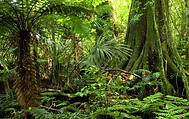
While how to prepare and implement REDD+ at the national level through a National Strategy or Action Plan was covered in the course Fundamentals on REDD+, Advancing on REDD+ discusses in more detail the other three REDD+ elements, to which it adds the importance of engaging in the process the relevant stakeholders and the principles of a good governance. It is structured into 6 modules, and each module takes around 2 to 3 hours to complete. All modules include an introductory video lecture, an interactive lesson and a learning journal in PDF format. The modules also include links to other UN resources on REDD+, which provides a gateway to more in-depth and specific information. The modules have been developed and peer-reviewed by UN-REDD and UN CC:Learn.
This tutorial introduces the concept of mainstreaming climate change adaptation into water resources. The effects of climate change are observed through the scarcity or abundance of water which in turn has serious impacts on other key socio-economic sectors such as health, agriculture, energy and infrastructure. For any climate change adaptation planning to be done, it will be important for these sectors to consider their linkages with water resources.
This tutorial is a learning initiative of the UN Institute for Training and Research (UNITAR) as part of the National Adaptation Plan Global Support Programme (NAP-GSP). It is part of the support to the NAP Toolkit to the face-to-face training package. The NAP-GSP is a joint programme, implemented by UNDP and UN Environment, in collaboration with other UN Agencies to assist countries with their NAP processes. The programme is funded through the Global Environment Facility (GEF) Least Developed Countries Fund (LDCF) and Special Climate Change Fund (SCCF).
UN CC:LEARN
Keeping the Taps running in a Changing Climate

UN CC:LEARN
Climate Change International Legal Regime
The Climate Change International Legal Regime course presents the causes and effects of climate change, describes the mechanisms established by the United Nations Framework Convention on Climate Change (UNFCCC) and explains the key provisions and commitments under the Kyoto Protocol and the Paris Agreement.
This introductory course is divided into 3 modules, each including 2 interactive lessons, resources for additional learning as well as a final summary, and taking an average of 1 hour to complete. A short quiz at the end of each module allows you to verify if you have achieved the learning objectives.
The course has been developed by the United Nations Environment Programme and the United Nations Institute for Training and Research. It is made available on UN CC:e-Learn through the new UN CC:Learn affiliation programme, which highlights high-quality e-learning products on climate change developed by recognized institutions outside the framework of the UN CC:Learn programme / without support from the UN CC:Learn Secretariat, in accordance with specific affiliation criteria. The objective of the UN CC:Learn affiliation programme is to enhance global climate literacy through dissemination of high-level learning products that complement UN CC:Learn resources.
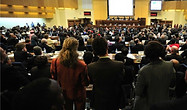
UN CC:LEARN
Sustainable Diet
Be a part of the sustainable food revolution! Learn how your food habits and daily choices are affecting your health and that of the planet. Gain the skills and knowledge to make your diet more healthy and sustainable. After completing the course you will be able to:
-
Explain what is at stake: how your food choices affect your health and the environment?
-
Make better food choices that consider both human and planetary well-being
-
Identify ways in which changing your diet makes a positive impact
-
Develop a personal sustainable and healthy diet plan or project
-
The course will help you take action to counter climate change and lead a sustainable and healthy lifestyle!

This course introduces the concept of Sustainable Finance and has been developed by the GIZ-SEB Strategic Alliance (STA) on Green Bond Market Development in G20 Emerging Economies and the Partnership for Action on Green Economy (PAGE), a One UN initiative bringing together UN Environment, ILO, UNDP, UNIDO, and UNITAR. The interactive and practice-oriented course is designed for interested participants from governments, financial sector, businesses, and civil society.
UN CC:LEARN
Sustainable Finance

LinkedIn Learning
Creating Great First Impressions

This course, designed by LinkedIn, introduces the concept of Creating Great First Impressions.
Inter-American Development Bank - INDES
Biodiversity in Environmental Impact Assessment - BEIA Edition 5
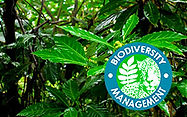.jpg)
This course provides a knowledge base on accepted good practices for the effective incorporation of biodiversity into the process of Social and Environmental Impact Assessment (EISA). These good practices have been created to ensure that the biodiversity information included in EISAs provides a precise and adequate analysis of the impact on biodiversity, providing a basis for the development of effective mitigation measures to ensure that these impacts are handled in an appropriate manner.
Inter-American Development Bank: IDB34.2x
Risk Management in Development Projects

This course was designed and organized by the Inter-American Institute for Economic and Social Development (INDES) of the Inter-American Development Bank (IDB). Its objective is to strengthen project teams’ capacity to preemptively manage events that may affect a project so as to improve its chance of success. Course content is based on the IDB’s new risk management methodology (OP-1699-1), which is aligned with A Guide to the Project Management Body of Knowledge (PMBOK® Guide), Sixth Edition, of the Project Management Institute.
The 2019 Edition of the Commonwealth Economic Development Report
The Commonwealth Secretariat

Consulted to provide the 2019 edition of the Commonwealth Economic Development Report chapter on the 'Commonwealth Pacific' for the Economic, Youth & Sustainable Development Directorate of the Commonwealth Secretariat.
Stockholm International Water Institute/SDGAcademyX: WTR001
Water: Addressing the Global Crisis

Water is the source of all life. Without it, neither humans nor nature will survive. Yet lack of access to water is a rapidly growing problem and one of the world’s gravest risks. The water we have at our disposal is often too little, too much or too dirty. We must learn to manage it more wisely, fairly and sustainably to avoid a serious water crisis.
The SDG Academy and the Stockholm International Water Institute have come together to offer this MOOC on some of the most important water issues. We focus on the key role water plays in the achievement of the Sustainable Development Goals, not least SDG 6, about sustainable water and sanitation for all.
The course aims to build theoretical knowledge as well as provide exposure to concrete practices from around the world through a series of case studies related to good water governance. It deals with issues of water and sanitation services, the role of ecosystems, the impact of climate change, the role of water for food and energy production, as well as shared water resources as a source of conflicts and cooperation. The course intends to explain the linkages between water, environment, and societal development, focusing on how to tackle issues such as growing water uncertainty and deteriorating water quality. Through the course you will gain a better understanding of how water influences lives and livelihoods. You will also learn how your own actions can contribute to a more water wise world.
This massive open online course "Monitoring selected SDG indicators in Asia-Pacific Small Island Developing States", was developed by the United Nations Institute for Training and Research (UNITAR) with the Secretariat of the Pacific Community (SPC), UN Economic and Social Commission for Asia and the Pacific (ESCAP), UN Statistics Division (UNSD) in collaboration with the World Bank, World Health Organization (WHO) and the Pacific Financial Technical Assistance Centre of the International Monetary Fund (PFTAC - IMF). It was developed further to a series of regional workshops conducted in the Asia-Pacific region for Small Island Developing States in September 2019.
The e-course aims to strengthen the capacities of these countries to organize national processes to monitor and inform the reporting on SDG indicators, as well as to fill in their identified selected priority data gaps that were not yet addressed through other capacity development programs.

Inter-American Development Bank - INDES
Principles for Reviewing Environmental Impact Assessments (PREIA) - Edition 9
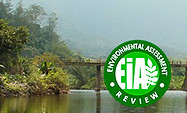
This e-learning course, developed by the Inter-American Development Bank, through the Environmental and Social Safeguards Unit and the Institute for Economic and Social Development (INDES), is designed to provide practical guidance to professionals involved in the review and evaluation of Environmental Impact Assessments. It is aimed at professionals who participate in the process of reviewing proposed projects, policies, or programs and/or those working on environmental protection and management, social or natural sciences, public management, etc. and who review and evaluate the results of Environmental Impact Assessments (EIAs) carried out by others. It is intended to apply to a range of legal, institutional, and cultural scenarios and to be used by reviewers from any country where Environmental Impact Assessments are conducted.
The contents of the online course, “Principles for the Review of Environmental Impact Assessments (PREIA),” are based on internationally accepted EIA principles and frameworks.
UN CC:LEARN
Green Fiscal Policy

The COVID-19 pandemic exposed many fragilities of our economies and deepened existing inequalities and imbalances. However, long before the pandemic hit nations across the world, many economies were marked by harmful and inefficient use of public and private resources, reinforcing environmental degradation, biodiversity loss, global warming and vulnerabilities linked to health and social exclusion. In the wake of the health and economic crisis, citizens are increasingly demanding a departure from business-as-usual approaches in favour of truly innovative and green policies. Similarly, many governments recognize that the transformative potential of this circumstance must not be wasted.
Greening recovery efforts can help nations build forward better after the pandemic to increase the well-being of people and resilience of countries to future crises. Green fiscal policies in particular can play a key role in countries’ recovery efforts by removing inefficiencies in public expenditures and raising additional fiscal revenues which can be directed towards immediate COVID-19 relief measures while supporting longer-term investments. While this course was developed prior to the outbreak of COVID-19, its contents therefore remain relevant to current policy discussions.
One practical challenge lies in ensuring that countries are both aware of these opportunities and that they possess the knowledge and skills to take advantage of them. To address this challenge, the course sets out to provide interested participants from government, business, and civil society with an introduction to the green fiscal policy tools and approaches to foster a more sustainable future.
UN CC:LEARN
Carbon Taxation

Recent years have seen renewed and growing interest in policy instruments that put a price on greenhouse gas (GHG) emissions through the adoption of carbon taxes. About half of the Nationally Determined Contributions (NDCs) submitted by governments under the Paris Agreement mention carbon pricing as a cost-effective tool to meet climate targets.
As pricing schemes multiply they become increasingly varied. Today, carbon taxes cover a broad range of sectors and include novel features, demonstrating their ability to adapt to varying policy goals and national contexts. The versatility of carbon taxes also means that policy makers need a clear picture of the available options and how those options fit with the jurisdiction’s context and objectives. While this course was developed prior to the outbreak of COVID-19, its contents remain relevant to current policy discussions as low fossil fuel prices present an opportunity to introduce or raise carbon taxes.
This online course provides a first step in understanding the carbon tax landscape.
Corruption hinders sustainable development in all countries. In order to tackle its root causes and consequences as well as to find solutions for prevention, accountability and redress, the impact of mainstreaming knowledge is a powerful resource towards transforming the lives of individuals and societies as a whole.
Mainstreaming knowledge about this problematic pursues the transformation of discriminatory social institutions, laws, cultural norms and community practices, such as those limiting access to property rights or restricting their access to public space.
In this regard, at international level there is a common agreement on the need of suppressing and preventing corruption because of its negative impacts and its ripple effects for employment, leadership, decision-making at all levels, among other repercussions. Therefore, the creation of spaces to raise awareness represents an opportunity to enhance capabilities and share good practices towards a culture of learning.
As a contribution to this endeavor, the Rule of Law and Anti-Corruption Centre (ROLACC) and the United Institute for Training and Research (UNITAR) have brought together their expertise and practical knowledge to collaboratively developed the e-learning course on “Anticorruption and Sustainable Development: Building inclusive and transparent societies for all”.
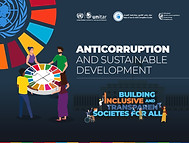
Intergovernmental Panel on Climate Change
Expert Reviewer: Working Group III to the IPCC Sixth Assessment Report (AR6)

The IPCC is committed to preparing reports assessing the current state of knowledge of the science related to climate change that aim for the highest standards of scientific excellence, balance, and clarity. To achieve this, each report undergoes two review periods: an Expert Review of the First Order Draft, and a Government and Expert Review of the Second Order Draft. This review process includes wide participation, with hundreds of reviewers commenting on the accuracy and completeness of the scientific assessment contained in the drafts. An Expert Reviewer may decide to comment on one section of the report, on a complete chapter, or on the report as a whole.
At the beginning of each review period, the IPCC issues a press release with details of the duration of the review period and how to participate. Expert Reviewers must provide a self-declaration of expertise.
https://www.ipcc.ch/2020/12/04/what-is-an-expert-reviewer-of-ipcc-reports/

Water is essential for life and for sustainable development, and well-managed water services contribute to poverty reduction, economic growth and environmental sustainability. Increasing human population, the impacts of climate change and unsustainable growth all place pressures on water demand, water quality and water availability.
The goal of the course is to build capacity on sustainable water resource management and treatment. It is intended to provide a solid understanding of water governance, within the framework of the newly adopted Sustainable Development Goals. The training also introduces key technologies and techniques to build water resilience, and explores the close interactions between water, energy, food and climate change.
This course was implemented by the University of Strathclyde, Gaia Education and the Social Development Programme of the United Nations Institute for Training and Research (UNITAR).

Climate change and disasters pose a growing threat to development. It is essential to identify the related risks early in the preparation stage of development operations and programs, to better integrate appropriate resilience measures to mitigate and cope with these risks.
The World Bank Group developed a suite of Climate and Disaster Risk Screening Tools to help development professionals screen for climate change and disaster risks during project preparation and sectoral- and national-level planning. The screening serves as an initial effort to identify opportunities for climate-smart project design.
This e-course illustrates how to undertake climate and disaster risk screening using the screening tools developed by the Climate Change Group of the World Bank and using climate information sources including the Climate Change Knowledge Portal and ThinkHazard!
This e-learning course was created as part of the Earth Observation for Sustainable Development: Fragility, Conflict and Security project funded by the European Space Agency and aims to give a short but practical introduction to Geospatial Infomation Technology (GIT) in states affected by fragility, with a focus on remote sensing.

UNITAR
Integrating Climate Risk Information into National Adaptation Plans
This e-learning course shows how to strengthen NAPs through appropriate climate information and coordinated policy action, enabling different types of institutions and actors to work together in a collaborative framework, drawing on the resources of the global hydro-meteorological community at large. This course has been developed by the United Nations Institute for Training and Research, the World Meteorological Organization and the Global Framework for Climate Services.

UNITAR
An Introduction to Climate Change and Human Rights

From hurricanes affecting communities in the Caribbean, to sea level rise threatening lives and livelihoods across the Pacific, heat waves and droughts across Europe, and people displaced in the context of extreme weather events, floods and droughts, the effects of climate change are already impacting human rights, including, the rights to food, water and sanitation, decent shelter, health, personal security, and even life itself. Climate change disproportionately affects the world’s most disadvantaged people – those who are the poorest, most exposed and have the least resources to withstand climate shocks and stresses such as extreme weather events. Climate action that is not anchored in a human rights-based approach risks further violating human rights.
This course addresses how human rights obligations require the international community to take more ambitious action to mitigate emissions, to support adaptation that benefits persons, groups and peoples in vulnerable situations, and to address loss and damage associated with the impacts of climate change. It demonstrates the importance of rights-based, participatory climate action, which leads to more coherent, sustainable and effective outcomes. Increased awareness and education on human rights and climate change have been identified as key variables to enhance and support effective, rights-based climate action.
The course has been developed by the Paris Committee on Capacity-building (PCCB) with support from the Office of the United Nations High Commissioner for Human Rights (OHCHR) and the Secretariat of the United Nations Framework Convention on Climate Change (UNFCCC), with funding support from Germany's Federal Ministry for Economic Cooperation and Development (BMZ) through the German Corporation for International Cooperation GmbH (GIZ).
This e-learning course is a self-paced course with individual 10 modules developed by the United Nations Environment Programme (UNEP), the United Nations Statistical Institute for Asia and the Pacific (UNSIAP) and the United Nations Institute for Training and Research (UNITAR). This course provides an overview of the importance of monitoring the environmental dimension of development, the linkage with existing statistical frameworks (FDES and SEEA) and how to use environment statistics in decision making. The modules will also provide a brief overview on all 25 SDG indicators under UNEP custodianship.
In particular, this e-learning course aims to build the capacity of countries – representatives of National Statistical Office (NSOs), Ministries of Environment and other stakeholders - to compile and use data on the environment-related SDGs for evidence-based decision-making and to promote cross-cutting data analysis to better understand the environmental dimension of development.
UNITAR
Environmental SDG Indicators

It is increasingly evident that environmental challenges have an impact on human health, reinforcing existing risks. For instance, it is estimated that climate change will cause around 250,000 additional deaths per year between 2030 and 2050 – linked to issues ranging from malnutrition to heat stress, with direct costs to health expected to be between USD 2-4 billion/year by 2030. Also, the current COVID-19 pandemic has highlighted the important interlinkages between human health and the state of our environment and economies.
With the recognition that the equilibrium between people and planet is one of the fundamental issues of our time, this online course delves into the interlinkages between climate change and health, with particular reference to the international climate change policy process and the need for a healthy a green recovery from COVID-19.
Specifically, the course aims to support delegates attending the 26th session of the Conference of the Parties (COP) to the United Nations Framework Convention on Climate Change (UNFCCC) and participating in climate diplomacy. It also provides valuable insights for the professionals involved in the development and implementation of national climate change and health policies.
The course was developed in collaboration with the World Health Organization (WHO), the United Nations Institute for Training and Research (UNITAR) and ClimateTracker.org.
UNITAR
Climate Change Negotiations and Health

Climate change is considered by many as among the greatest risks for peace and security in the 21st century. As the planet’s temperature rises, extended droughts, rising sea levels, and more frequent and intense storms are affecting the lives and livelihoods of people in all corners of the globe. Particularly in conflict affected settings, these impacts can compound economic, social or political drivers of insecurity, leaving already vulnerable populations on the frontlines of multiple, intersecting crises.
This self-paced, online course unpacks the interlinkages between climate change, peace and security and explores opportunities for promoting inclusive climate action, conflict prevention and peacebuilding. Recognizing that challenges associated with climate change and insecurity do not impact everyone equally, the course includes a special focus on assessing the ways gender norms and other factors of social identity shape how people from different backgrounds experience and respond to these emerging risks.
UNITAR
Climate Change, Peace and Security
Understanding Climate-Related Security Risks Through an Integrated Lens

UNITAR
An Introduction to Energy Efficient Shipping Operations

This course provides a better understanding of how the maritime industry can reduce its environmental carbon footprint through practical measures to save energy on board. It also provides you with facts and figures, and a better understanding of the global international regulatory framework to address emissions from ships.
This self-paced free course has been developed by the Global Industry Alliance to Support Low Carbon Shipping (Low Carbon GIA), a public-private partnership bringing together leading maritime companies to address barriers to low carbon shipping, established under the IMO-Norway GreenVoyage2050 Project. The course is made available on UN CC:e-Learn through the new UN CC:Learn affiliation programme, which highlights high-quality e-learning products on climate change developed by recognised institutions outside the framework of the UN CC:Learn programme / without support from the UN CC:Learn Secretariat, in accordance with specific affiliation criteria. The objective of the UN CC:Learn affiliation programme is to enhance global climate literacy through dissemination of high-level learning products that complement UN CC:Learn resources.
UNITAR
Mastering National Adaptation Plans: from Start to Finish

The adverse impacts of climate change are becoming increasingly more acute, particularly for developing countries. This further exacerbates the wellbeing of the poorest and most vulnerable, meaning adaptation is now crucial to their survival and protection. Successful national adaptation planning requires detailed knowledge and practical skills in order to effectively and efficiently tackle current and future threats.
The National Adaptation Plan (NAPs) process was established under the Cancun Adaptation Framework (2010) in order to prepare countries for addressing climate risk in the medium term. The main objectives of the NAPs are to reduce vulnerability to climate change, and to mainstream climate change adaptation in all levels of planning. NAPs require building a stronger evidence base, improving skills and capacity. Additionally need to be country-driven, gender-sensitive, participatory, and use transparent approaches.
This course Mastering National Adaptation Plans: from Start to Finish course will introduce learners to several important aspects of the NAP process. It is aimed at enhancing knowledge of the NAP process elements, relevant issues such as gender and climate information in NAP Formulation and Implementation; and financing NAP processes. This interactive self-paced course will guide learners through various aspects of the NAP journey.
This self-paced course is a learning initiative of the UN Institute for Training and Research (UNITAR)and part of the National Adaptation Plan Global Support Programme (NAP-GSP). The NAP-GSP is a joint programme, implemented by UNDP and UN Environment, in collaboration with other UN Agencies to assist countries with their NAP processes. The programme is funded through the Global Environment Facility (GEF).
UNITAR
Building Climate Resilience through Ecosystem-based Adaptation Planning

Considering ecosystem approaches as part of national development planning has always been challenging for many countries around the world. The role ecosystems play in strengthening resilience and broadening livelihood opportunities and economies in the face of climate change has not been sufficiently included in national development agendas. Not until now. With the Paris Agreement, recognizing “the protection of the integrity of ecosystems and biodiversity for both climate change mitigation and adaptation actions” , nature-based solutions (NbS), including ecosystem-based adaptation, for adapting to current and future climate change has come to the fore and countries are eager to find solutions to climate risk that can deliver multiple benefits (social, economic and environmental). Ecosystem-based Adaptation (EbA), which encompasses the wise use of ecosystem services to help people adapt to climate change, delivers a wide range of benefits that boost overall development and human wellbeing and may contribute to national strategies to respond to the triple crises of biodiversity loss, climate change and the global post-pandemic scenario.
This self-paced course is a learning initiative of the UN Institute for Training and Research (UNITAR) and part of the National Adaptation Plan - Global Support Programme (NAP-GSP) in partnership with Friends of the EbA (FEBA) of IUCN.
United Nations Summer Academy 2022

The UN Summer Academy aims to bring together sustainability actors from multiple different sectors and regions on a common platform to explore key challenges to the achievement of the 2030 Agenda for Sustainable Development, particularly in areas such as health and well-being, social protection, economic transformation, and climate action.
The theme of the 2022 UN Summer Academy was 'Sustainable Transformation Pathways'. The 5-day Programme examined different thematic areas using conceptual tools like systems thinking, design thinking and futures thinking.
The UN Summer Academy introduced conceptual approaches underpinning the notion of sustainable development, the 2030 Agenda for Sustainable Development and its 17 Sustainable Development Goals, as well as the Paris Agreement on Climate Change under the United Nations Framework Convention on Climate Change.
The 2022 Programme explored sustainable development from a multi-sectoral perspective, focusing on critical themes such as health and well-being, social protection, economic transformation, and climate action. Participants looked at how transformative thought frameworks of systems thinking, futures thinking, and design thinking can address these issues in a complex and volatile context. Alongside these core themes and conceptual approaches, the Programme also featured trending sustainable development topics such as innovation for sustainable development and frontier technologies. Experts highlighted the latest developments in these areas and their potential contribution to sustainable development efforts.
United Nations System Staff College
The Paris Agreement on Climate Change as a Development Agenda

The UNSSC Knowledge Centre for Sustainable Development collaborates with the UNFCCC in delivering this joint free online course. Climate change is a cross-cutting development issue that affects every aspect of sustainable development and the entire 2030 Agenda.
The Paris Agreement on Climate Change, along with the 2030 Agenda, including the Sustainable Development Goals, forms the most comprehensive blueprint to date for eliminating extreme poverty, reducing inequality, and protecting the planet. Together with the Addis Ababa Action Agenda, and the Sendai Framework for Disaster Risk Reduction, these documents constitute an integral plan of action for people, planet, and prosperity, which requires all countries and stakeholders to act together. Sustainable development and climate action are deeply interconnected and interdependent. The course frames climate change and climate action around the five core cornerstones of the 2030 Agenda: People, Planet, Prosperity, Peace and Partnership.
United Nations Conference on Trade and Development
Evidence-Based and Policy coherent Oceans Economy and Trade Strategies (OETS Project)
This consultancy, which falls under the auspices of the United Nations Conference on Trade and Development (UNCTAD), represents a significant aspect of the “Evidence-Based and Policy coherent Oceans Economy and Trade Strategies (OETS Project)”. Over the period of January 2018 to June 2022, the project was funded by the United Nations Development Account and implemented by the United Nations Conference on Trade and Development (UNCTAD) in cooperation with the Division for Ocean Affairs and the Law of the Sea (DOALOS) of the Office of Legal Affairs of the United Nations. The OETS Project is designed to support the development of the Blue Economy within selected developing states such as Barbados, Belize, and Costa Rica. For Barbados, the project aims to promote the Blue Economy ideal via the realization of improved economic benefits from the effective implementation of an ocean governance framework including for the sustainable use of marine resources and the trade of products and services in selected ocean-based economic sectors - particularly as it relates to sustainable marine fisheries and seafood processing.

United Nations Climate Change: Regional Collaboration Centre
UNFCCC-WINDREF Regional Collaboration Centre for the Caribbean Region: RCC St. George's

The Regional Collaboration Centres (RCCs) support national climate action through capacity-building, technical assistance and strategic networking – sourcing know-how and resources to drive clean development. They were established to spread the benefits of the Clean Development Mechanism (CDM), which spurs investment in sustainable development by rewarding projects that reduce greenhouse gas emissions. Since the adoption of the Paris Climate Change Agreement in December 2015, the RCCs have had the broader task of supporting implementation of countries' Nationally Determined Contributions under the agreement. Currently, UN Climate Change and its partner organizations operate six RCCs around the world.
Project Countries:
Antigua and Barbuda, The Bahamas, Barbados, Belize, Cuba, The Commonwealth of Dominica, Dominican Republic, Grenada, Guyana, Haiti, Jamaica, Saint Kitts and Nevis, Saint Lucia, Saint Vincent and the Grenadines, Suriname as well as Trinidad and Tobago
Supporting Region: Latin America
Argentina, Bolivia, Brazil, Chile, Costa Rica, Colombia, Ecuador, El Salvador, Guatemala, Honduras, Nicaragua, Panama, Paraguay, Peru, Venezuela and Uruguay.
United Nations Office for Disaster Risk Reduction
The Midterm Review of the Sendai Framework
.jpg)
Called for by the UN General Assembly, the Midterm Review of the Sendai Framework (MTR SF) marks the midpoint in the implementation of the Sendai Framework, the 2030 Agenda, the Paris Agreement, and the Addis Ababa Action Agenda. It is also an essential milestone for other UN frameworks.
The MTR SF has retrospective and prospective elements. It works to take stock, identify emerging issues, uncover context shifts, and build coherence with other frameworks, to better address the systemic nature of risk and so realize regenerative and sustainable development.
The MTR SF will conclude in 2023 at a high-level meeting of the General Assembly. The review and political declaration adopted at this meeting can inform inter alia the SDGs Summit, the UN Secretary General’s Summit for the Future, and the recommendations for Our Common Agenda, and COP28.
Project Country: Barbados
United Nations Office for Disaster Risk Reduction
The Comprehensive Disaster and Climate Risk Management (CRM) Programme
Climate and disaster risks are diverse, but interrelated, cascading and compounding. Managing risks in one area, without applying a holistic approach, has and can serve to create more risks in another area. This is the genesis and foundation of the comprehensive risk management approach. In alignment with the Paris Agreement, which recognizes the importance of comprehensive risk management in Article 8, CRM encompasses collaborative efforts to enhance understanding, action, and support in averting, minimizing, and addressing loss and damage. It involves managing extreme and slow-onset events through near-, medium-, and long-term risk reduction and adaptation actions, while fostering active collaboration among government institutions, non-State actors, and stakeholders.
A focus on climate action
With average global temperature increase already having reached 1.1°C, climate change is rapidly altering the risk profile of the planet, magnifying the magnitude, frequency and severity of disasters. Extreme weather events have doubled over the last 20-year period when compared with the previous twenty years.
The magnitude and rate of climate change and associated risks depend strongly on near-term mitigation and adaptation and risk-reducing actions. Risk-blind planning can — and in some cases already has — created new risks and resulted in maladaptation. Hence, risk reduction cannot occur without the use of climate information; climate change adaptation will not be successful without risk reduction.
UNDRR is committed to supporting countries achieve risk-informed and integrated approach to sustainable development. This is reflected in the new Strategic Framework 2022-2025 that identifies addressing the climate emergency as a high priority, embedded in the ‘accelerator’ on climate agenda and climate risk reduction, and reflected as a key result (Result 1.2) with clear deliverables.
A UNDRR Flagship Initative
This redirected focus on climate action is advanced through UNDRR’s flagship initiative, Comprehensive Disaster and Climate Risk Management (CRM). This is aligned with the Target E of the Sendai Framework for Disaster Risk Reduction that seeks to increase the number of countries with national and local disaster risk reduction strategies, wherein promotion of policy coherence with climate change, among others, is one of the defined principles. A comprehensive approach takes into consideration a number of factors to purposively strengthen synergies between disaster risk reduction and climate change adaptation, by identifying mutually beneficial opportunities across policies and programmes, while developing capacities of governments for cross-sectoral planning, and ensuring vertical alignment.
The CRM programme seeks to integrate risk-centred approaches into National Adaptation Plans (NAPs), and climate/forecast information into national and subnational disaster risk reduction strategies, aligning them better with the national adaptation goals. The CRM programme, hence, focuses on risks across different timescales – short, medium, long-term – and therefore using information from weather, seasonal and climate forecasts and predictions, and translating such information into meaningful information to enable more comprehensive planning and implementation.
Full-spectrum analysis
Building on risk understanding, including through the Risk-Information Exchange, the CRM programme promotes application of a full-spectrum analysis of risk in a country, provision of technical resources and guidance, and targeted capacity development. This is based on analysis of existing policy landscape between disaster risk reduction and climate change at various levels, while good practices are documented and disseminated.
Project Scope: Global






